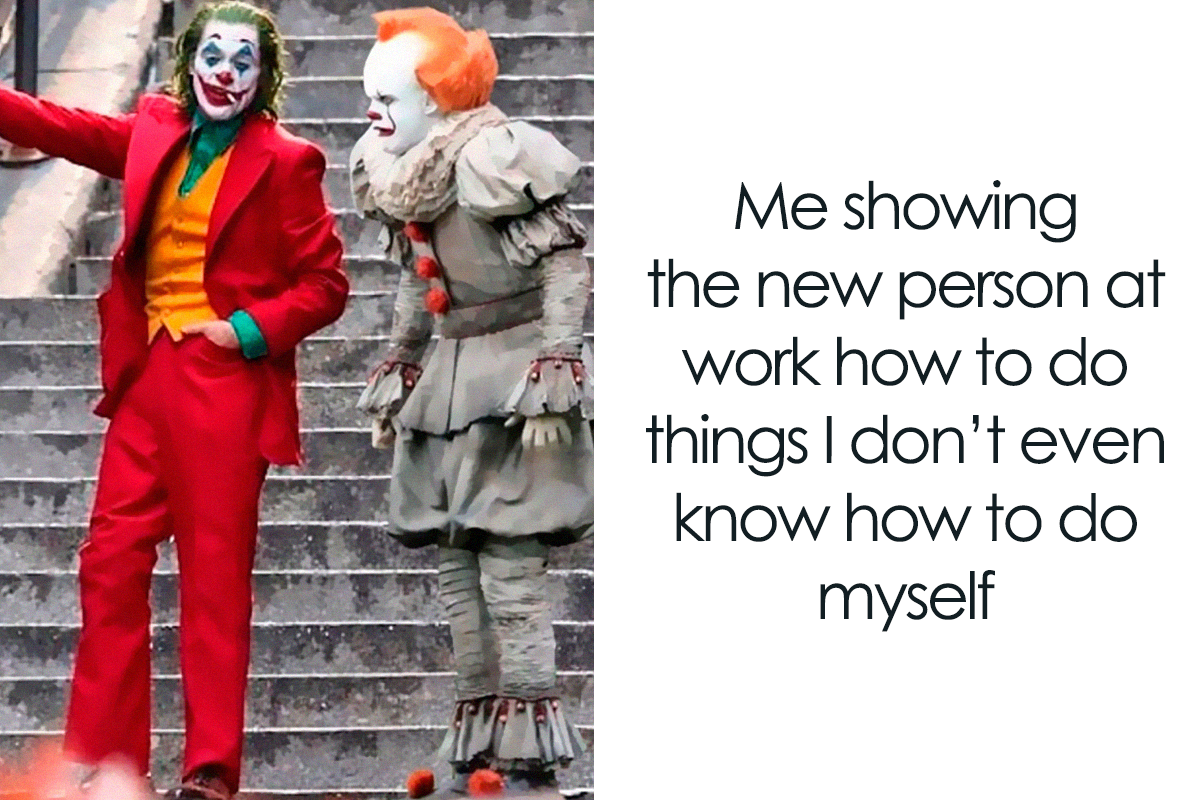There's something truly special about words that make us chuckle, isn't there? We often find ourselves grinning, perhaps even letting out a little giggle, when a particular sound or combination of letters just hits right. It's almost like a secret language of mirth, and today, we are going to talk about words starting with the letter 'L' that just seem to carry a bit of extra funny.
You know, it's a bit like browsing through a huge collection of amusing things online, perhaps like those popular places where people share funny pictures or short videos. Sometimes, you come across a phrase or a word, and it just clicks. It's not always the grandest joke, but rather a subtle twist that brings a smile, something that just makes your day, like when someone shared a name like "lil mew mew" and it really cracked someone up for some reason.
We are going to explore some of these linguistic gems, you know, the ones that might make you pause and think, "Wait, that sounds rather silly!" It's a journey into the lighter side of language, looking at how sounds and meanings can combine to create moments of pure, simple amusement, much like how a funny username can make your day, or seeing a funny story told only by actions and without speaking.
- Victorian Goth
- Danielle Rose Russell Movies And Tv Shows
- Wolverines Claws
- Who Were Sam Elliotts Wives
- Bill Skarsg%C3%A5rd Tv Shows
Table of Contents
- What Makes Words So Amusing?
- How Do We Spot the Humor in Language?
- Are There Truly Laugh-Out-Loud "L" Words?
- Where Do These Amusing "L" Words Come From?
- The Joy of Lexical Lightheartedness
- Why Do We Share Funny Language?
- Can Everyday Words Be Amusing Too?
- The Lasting Impact of Ludicrous Language
What Makes Words So Amusing?
The fun in words often comes from a mix of things, you know? Sometimes, it's the actual sound a word makes when you say it out loud. It might have a bouncy rhythm, or perhaps it just feels odd on your tongue. Other times, it's the meaning itself, especially if it paints a picture that's a bit ridiculous or unexpected. Think about how people find humor in different online spaces, like those big humor collections where folks share all sorts of funny stuff. They're looking for that particular feeling, that little spark of amusement, and words can certainly deliver it.
Actually, the way a word sounds can almost mirror its meaning. A word might sound slow and drawn out, or quick and snappy, and that sound can add a layer of fun to what it means. It’s like when you hear a programming joke, say, about a "main method that can't be called without an instance of a class, so I made it static" – the humor comes from understanding the situation and the slightly absurd fix. Words work in a similar way, creating a little scene in your head just by their presence. It's pretty cool how that works, really.
The Laughter of "Lollygagging"
Consider the word "lollygagging." Just saying it out loud, you know, it has a kind of soft, drawn-out sound to it. It rolls off the tongue in a way that suggests a lack of urgency. What does it mean? It means to waste time, to dawdle, to move slowly and without purpose. The word itself sounds exactly like someone who is not in a hurry, someone who is just kind of messing around. It's almost like the word itself is taking its sweet time to be spoken, which is, in a way, a bit amusing. You can practically see someone doing it just by hearing the word.
- Whisper Challenge Sentences Funny
- Natural Way To Dye Hair Black
- Actors With Long Black Hair
- Rosemarie Fritzl Still Alive
- Memes Veterans Day
This word brings a smile because it's so descriptive, yet also a little silly. It's like finding a really good meme that just perfectly captures a feeling or a situation. You see it, you get it, and it makes you grin. "Lollygagging" does that with its sound and meaning. It's a word that invites a relaxed, easygoing feeling, making it a rather delightful addition to our collection of amusing 'L' words. It’s not a complex joke, just a simple, well-crafted piece of language that brings a little bit of joy.
How Do We Spot the Humor in Language?
Spotting the humor in language often comes down to noticing the unexpected, or recognizing a clever play on sounds or ideas. It's basically about finding those little quirks that make us smile. Think about how people find funny usernames online; they often combine words in a surprising way, or they pick something that just sounds inherently silly. It's the same with words themselves – sometimes, it's the odd pairing of letters, or a sound that doesn't quite fit what you expect, that makes a word stand out as amusing.
It's also about context, you know? A word might be perfectly normal in one situation, but put it somewhere else, and it becomes rather funny. This is similar to how a funny sound effect can make a moment in a game much more entertaining, like when someone gets hit and a silly noise plays. The sound itself might not be funny, but in that moment, it adds to the fun. Words have that power too, to transform a simple idea into something that brings a little bit of laughter, really.
Unpacking the Playfulness of "Lummox"
Take "lummox," for instance. This word describes a clumsy, awkward person, especially one who is a bit slow-witted. The sound of "lummox" itself is kind of heavy and a little bit clunky, isn't it? It has a sort of dull thud to it, which perfectly matches the image of someone who might trip over their own feet or knock things over. I mean, it's not a delicate word at all, and that's part of its charm. It just sounds like a big, ungraceful lump.
The playfulness of "lummox" comes from how well its sound conveys its meaning. It’s like when you hear a funny character name in a game, perhaps like "frostitute" for a mage or "restosterone" for a shaman. Those names just *fit* the character in an amusing way, making them instantly memorable and a bit silly. "Lummox" does that for a person – it’s a simple, direct way to describe someone in a way that’s a little bit teasing, but also quite funny, pretty much. It's a word that truly earns its spot among funny 'L' words.
Are There Truly Laugh-Out-Loud "L" Words?
Whether a word makes you laugh out loud is, arguably, a very personal thing. What one person finds hysterically funny, another might just find mildly amusing, or not funny at all. It's like that experience of running into someone named "lil mew mew" – for one person, it really made their day, but they knew it wasn't the funniest thing for most people. Humor is subjective, and that's perfectly okay. But there are certainly words that, for many, carry a strong sense of the ridiculous or the unexpected, leading to a good chuckle.
Obviously, some words have a more universal appeal in their silliness. It might be because of their unusual sound, or perhaps the mental image they create is just so absurd it's hard not to crack a smile. We are looking for those words that tend to provoke a stronger reaction, even if it's just a quiet snicker. These are the words that stick with you, the ones you might bring up in conversation just to see if they get the same reaction from someone else. It's a bit of a shared experience, trying to find those linguistic gems.
The Odd Charm of "Lickspittle"
"Lickspittle" is one of those words that has an odd charm, you know? It refers to someone who is a fawning, servile person, someone who tries very hard to gain favor by being overly submissive. The word itself creates such a vivid, almost unpleasant, image. You can practically see someone, well, licking the spittle from another's mouth, which is, in a way, a rather grotesque and therefore amusing picture. It’s not funny in a lighthearted way, but more in a darkly comical, slightly disgusted sort of way.
The humor here comes from the sheer bluntness and the slightly disgusting imagery the word conjures. It's like watching two people fight for their life, and then a fist just clamps them in the head – there's a certain shock and absurdity that can make you laugh, even if it's a bit dark. "Lickspittle" has that kind of impact. It’s a word that doesn't hold back, and its directness, combined with its unusual construction, makes it memorable and, for some, quite funny. It's certainly a unique entry in the list of funny 'L' words, sort of.
Where Do These Amusing "L" Words Come From?
As a matter of fact, words, especially amusing ones, often have fascinating origins. Language is always changing, always growing, and new words or new uses for old words pop up all the time. Sometimes, a word might come from an older language, evolving over centuries into something quite different. Other times, it might be a blend of two words, or even a sound that people just started using to describe something. It's a bit like how cultural information gets shared and passed around, you know, like memes. They start somewhere, get changed, and then spread, sometimes taking on new meanings or becoming funnier over time.
In a way, the journey of a word can be as interesting as the word itself. Many of the words we find amusing today might have had very serious or straightforward beginnings. But over time, perhaps through common use or just the way they sound, they picked up a lighter, more humorous feel. It’s a natural process, really, much like how communities online decide what’s "dank" and what’s "stank" through voting – language users collectively decide what resonates and what falls flat. These 'L' words are no exception, actually.
The Story Behind "Loquacious"
"Loquacious" is a word that means very talkative, someone who talks a lot. Now, at first glance, it might not seem overtly funny. It sounds rather formal, doesn't it? But there's a subtle humor in its sound. It’s quite a mouthful to say, almost as if the word itself is taking its time, being a bit wordy, just like the person it describes. The contrast between its somewhat grand sound and the simple, everyday act of talking a lot is what makes it amusing. It’s a word that sounds important, but describes something that can be quite trivial or even annoying.
The story behind "loquacious" comes from the Latin word "loqui," meaning "to speak." Over time, it developed into this rather long and somewhat formal word for someone who just won't stop chattering. It’s funny because it gives a fancy name to a very common human trait, and that little bit of elevated language for a simple idea can be quite humorous. It’s like using overly technical terms to describe something simple, like that programming humor about the "main method." The contrast is where the fun lies, quite often.
The Joy of Lexical Lightheartedness
There's a genuine joy that comes from playing with words, well, and discovering their lighter side. It's a bit like a mental tickle, a moment of pure, simple delight. This feeling is why places like r/funnymemes exist – they are places for people to post and binge-watch amusing things, and definitely a place to put you in a happy mood. The words we choose, and the way they sound, can really influence our state of mind, bringing a little bit of sunshine to our day. It’s not just about the meaning; it’s about the whole experience of the word.
Just like a funny story told through actions can make you laugh without a single spoken word, some words carry their own inherent lightness. They don't need a joke wrapped around them; their very existence is enough to bring a smile. This lightheartedness is something we often seek out, whether it's in a silly username or a quirky phrase. It's a way of finding amusement in the everyday, turning something ordinary into something that sparks a little bit of happiness, just by its sound or its slightly odd meaning.
Considering "Lackadaisical"
"Lackadaisical" is a word that means lacking enthusiasm and determination, carelessly lazy. Say it out loud: "lack-a-DAY-si-cal." It has a kind of meandering, drawn-out quality to it, doesn't it? The word itself sounds a bit tired, a bit like it can't be bothered to finish quickly. This makes it rather amusing, as its sound perfectly mirrors its meaning. You can almost hear the sigh of someone who is feeling "lackadaisical" just by pronouncing the word.
The humor in "lackadaisical" comes from this phonetic echo. It's a word that truly embodies the feeling it describes. It's like when you see a picture that perfectly captures a lazy afternoon – the word itself paints that picture with its sound. It’s a bit of a longer word, which adds to its charm, giving it space to convey that sense of unhurried, almost bored, movement. It’s a fantastic example of how a word’s structure can contribute to its overall amusing effect, kind of.
Why Do We Share Funny Language?
We share funny language for a lot of reasons, basically. One big reason is simply to connect with others. When you find something amusing, whether it’s a funny word or a hilarious meme, the natural thing to do is to share it and see if it makes someone else laugh too. It’s a way of building common ground and creating shared moments of joy. This is similar to how communities online thrive on user-provided content, where people decide, through voting, what's good and what's not.
Sharing funny words or phrases also helps to spread cultural information, you know? Just like memes are elements of culture that get passed from one person to another, funny words become part of our collective vocabulary of amusement. They become inside jokes, or just common ways to describe something silly. It’s a simple act that brings people together, fostering a sense of community around shared laughter, pretty much. It's a powerful thing, the ability of language to entertain and unite us.
The Appeal of "Lollapalooza"
"Lollapalooza" is a fantastic word that means something outstanding or unusual, or a spectacular event. I mean, just the sound of it! "Loll-a-pa-LOO-za!" It’s bouncy, it’s vibrant, and it feels like a celebration just to say it. The word itself suggests something big, exciting, and perhaps a little bit wild. It’s the kind of word you’d use to describe an amazing show or a truly wild party, and its sheer phonetic energy makes it amusing.
The appeal of "lollapalooza" comes from its over-the-top sound. It's a word that feels like a verbal exclamation mark. It’s like watching a competition where contestants have to tell a funny story only by actions and without speaking – the sheer energy and unexpectedness of it can be truly entertaining. "Lollapalooza" has that same kind of unexpected burst of fun. It’s a word that doesn’t just describe something amazing; it *sounds* amazing, and that makes it a truly funny and memorable 'L' word.
Can Everyday Words Be Amusing Too?
Actually, yes, absolutely. We often think of funny words as being obscure or very unusual, but sometimes, the humor hides in plain sight, in words we use every single day. It's about looking at them with a fresh perspective, or noticing a subtle oddity you hadn't considered before. This is a bit like how programming humor can be funny even though it uses very specific, everyday terms within that field. The humor comes from the situation or the unexpected twist, not necessarily from a strange word itself.
So, you know, even simple words can carry a little spark of amusement. It might be how they sound when combined with other words, or how they describe something in a way that's slightly off-kilter. It’s about finding the fun in the ordinary, which is a great skill to have. It’s similar to how a funny sound effect when you hit someone in a game adds to the fun – the sound itself isn't complex, but in that context, it creates amusement, really. These everyday 'L' words can surprise you with their hidden fun, sort of.
A Look at "Lopsided"
Consider "lopsided." This word means uneven, with one side lower or smaller than the other. It's a fairly common word, but there's a
Related Resources:



Detail Author:
- Name : Marie Boehm
- Username : hassie.wiegand
- Email : federico14@yahoo.com
- Birthdate : 1978-05-04
- Address : 794 Pollich Parkway Carrollport, MI 34485-4295
- Phone : 1-772-388-0984
- Company : Kuhic, Schoen and Grant
- Job : Drywall Ceiling Tile Installer
- Bio : Error a pariatur qui sequi. Aliquid asperiores eum dolorem mollitia eos modi. Voluptatibus et quo molestiae et earum non delectus. Expedita asperiores sint quia qui.
Socials
instagram:
- url : https://instagram.com/kayli_turcotte
- username : kayli_turcotte
- bio : Iure a sunt quis rem. Omnis dolore corporis nam molestiae.
- followers : 5318
- following : 1899
twitter:
- url : https://twitter.com/kayli_xx
- username : kayli_xx
- bio : Quas et quia sed consequuntur. In et sed porro dolores debitis nihil quas eos. Numquam voluptatem quo beatae.
- followers : 2973
- following : 1344
tiktok:
- url : https://tiktok.com/@kayli.turcotte
- username : kayli.turcotte
- bio : Aut pariatur aut quia odit error. Libero dicta nam eius autem nisi.
- followers : 4688
- following : 1933
linkedin:
- url : https://linkedin.com/in/turcotte1995
- username : turcotte1995
- bio : Voluptatem beatae quod ratione magnam.
- followers : 5805
- following : 1879